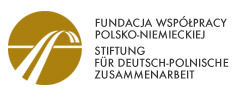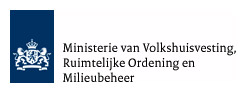Georgian WECF members report from Geneva on the European preparatory meeting for CSD-14
UN Commission on Sustainable Development 14th session on Energy, Climate Change and Air Pollution
09.03.2006 |Manana Juruli and Rusudan Simonidze
1. Representing WECF, Dr.Manana Juruli (Georgian Environmental and Biological Monitoring Association) and Dr. Rusudan Simonidze (The Greens Movement of Georgia) participated in the Workshop on the UN Commission on Sustainable Development cluster issues, and the UNECE CSD Regional Implementation Meeting (RIM) that was held in Geneva from 14 to 16 December 2005.
2. The objective of the participation was to get involved in the CSD process, and to make sure that women’s voices are represented at the regional level in the entire CSD process.
3. ANPED (Northern Alliance for Sustainability) organised a preparatory meeting on 14 December in order to inform civil society about the upcoming UNECE CSD Regional Implementation Meeting. Participants included representatives of several international and national NGOs, e.g. WWF, German Forum for Environment and Development, INFORSE, a number of ANPED member organisations as well as representatives of trade unions and the industry.
4. Mr. J.G.Strandenaes, Senior Policy Adviser of ANPED, and a representative of the UNECE CSD unit opened the meeting.
5. At the meeting it was reported about the status of the preparations for CSD and the new internal UN energy cooperation "UN Energy" (see http://esa.un.org/un-energy/). Furthermore, the participants were informed that only 20 countries and 4 major groups had produced input in regard to the call for input on CSD from UN-DESA.
6. Ms.Gail Karlsson spoke about the priorities of women. She called for an environmentally sound and sustainable development and provided background information and „lessons learned“ on the gender aspects in relation to energy and climate change policies. She hoped that her concerns would be taken into account in the discussions during CSD-14 and in the recommendations made at CSD-15. These issues were reflected in the final documents/declaration of the UNECE CSD RIM.
7. On the second day ANPED organized a meeting with the EU countries that are co-operating re CSD. The countries distributed the tasks. Denmark took the lead on energy in preparation of CSD-14, afterwards the task will be re-distributed. During CSD-14 Austria is presiding the EU Council, and will probably take on a leading role.
8. The NGOs will continue to prepare CSD-14 and will also participate at the meeting which will take place in New York from 1 to 12 May 2006. The NGOs’ preparatory meeting is scheduled for 30 April 2006 and will be organized by ANPED and other co-ordinators. The NGOs are planning to keep networking and cooperating regarding the main priorities for CSD. CURES also established a CSD group. Several big national and international NGOs are planning to attend the CSD sessions. The participation of NGOs from developing countries and those with economies in transition will depend on the available funding.
9. On 15 December 2006, the second Regional Implementation Forum on Sustainable Development within the United Nations Economic Commission for Europe (UNECE) region was opened. The aims of the Forum are: assessment of the situation in the region with respect to energy for sustainable development, industrial development, air pollution and climate change and related cross-sectoral issues; and reporting on these issues to the United Nations Commission on Sustainable Development at its fourteenth session from 1 to 12 May 2006 as an integral part of the first (review) year of its two-years implementation cycle.
10. Approximately 250 persons participated, representing governments, international organisations, non-governmental organisations and the private sector.
11. Representatives from 42 UNECE member States participated: Armenia, Austria, Belarus, Belgium, Bosnia and Herzegovina, Bulgaria, Canada, Croatia, Cyprus, the Czech Republic, Denmark, Estonia, Finland, France, Georgia, Germany, Greece, Hungary, Iceland, Ireland, Israel, Italy, Latvia, Luxembourg, Monaco, the Netherlands, Norway, Poland, Portugal, the Republic of Moldova, Romania, the Russian Federation, Serbia and Montenegro, Slovakia, Spain, Sweden, Switzerland, The Former Yugoslav Republic of Macedonia, Turkey, Ukraine, the United Kingdom and the United States of America. Representatives of The Holy See and the European Commission also participated.
12. The secretariat was provided by the UNECE.
13. The following units of the United Nations Secretariat and other specialiced agencies of theUnited Nations participated: the United Nations Department for Economic and Social Affairs, the United Nations Development Programme, the United Nations Environment Programme and the United Nations Industrial Development Organization. The Black Sea Economic Cooperation Organization, the Nordic Council of Ministers, the Organization for Security and Co-operation in Europe, the World Bank and the World Health Organization were also represented.
14. The following non-governmental and private-sector organizations were represented:
Academy of Mining Sciences (Russian Federation), Association of Conscious Consumers (Hungary), Association for Environmental Education (Russian Federation), Carbon Management International, CEEWEB (Hungary), Central and East European Working Group for the Enhancement of Biodiversity, Dutch Platform for Sustainable Development, NCDO (Netherlands), European Advisory Council for Technology (Monaco), European Eco-Forum, Helio International (France), Intermediate Technology Development Group Limited (ITDG (United Kingdom), International Confederation of Free Trade Unions, Netherlands Women’s Council (Netherlands), Northern Alliance for Sustainability (ANPED), Public Services International, Shell Hydrogen B.V., Stakeholder Forum, The Russian Cleaner Production Center, World Business Council for Sustainable Development, World Energy Council and WWF International.
15. Also represented were the Regional Environmental Center for Central Asia, the Regional Environmental Center for the Republic of Moldova and the Regional Environmental Center for Central Europe and Eastern Europe.
16. The Forum was chaired by Mr. Elliot Morley (United Kingdom), Minister of State for
Climate Change and Environment. Mr. Darius Mesca (Romania), State Secretary for Energy Policy, was elected as Vice-Chair.
17. Mr. Paolo Garonna, Acting Executive Secretary of UNECE, delivered the opening speech. A keynote address by Mr. Aleksi Aleksishvili (Georgia), Finance Minister and Chair of the United Nations Commission on Sustainable Development, was read in his absence by his advisor Ms. Ketevan Sandroshvili.
18. The first three sessions of the Forum focused on the issues of energy for sustainable development, industrial development, air pollution and climate change.
They each included a keynote address and two additional prepared statements, followed by an interactive discussion with broad stakeholder participation.
20. The UNECE RIM focussed mainly on energy issues and related topics (which are on the agenda of CSD-14).
21. Before the meeting and the discussions we provided information on related gender issues to Ms. Ketevan Sandroshvili. In particular the Women’s Major Group’s discussion paper for CSD-14 “Engendering the energy and climate change agenda” was discussed. Ms. Ketevan Sandroshvili took these concerns into account. She promised to discuss gender issues with Mr. Alexi Alexishvili after her return to Georgia and to advise him to include the same into his keynote address for the CSD 14 meeting.
22. The second day discussions focused on industrial development, air pollution and climate change. Some particularly worrying issues were raised by participants, especially on air pollution. The situation is not improving and, as WHO mentioned, mortality rates caused by air pollution will grow in coming years. Education was also mentioned as one of the very important areas to develop further.
23. Different opinions were expressed during the discussion. Gunnar Boye Olesen spoke on behalf of the NGOs.
24. At the end of the meeting there was time for interventions. Particularly, it was stated that awareness raising, advocacy and lobbying for the inclusion of gender sensitivity in the proceedings and outcomes of the CSD related to sustainable energy, climate change, industrial development and air pollution will help to focus attention on gender equality in the development of national, regional and international sustainable development policies. It will also serve to give adequate attention to gender equality in relation to these issues in the recommendations, outcomes and follow up activities expected to result from CSD-14 and 15.
25. We put forward a proposal on our efforts to hold a preparatory regional meeting for civil society from EECCA countries in Georgia. This meeting shall highlight in particular, the needs of these countries and will inform civil society about the 14th session of CSD.
MAIN CONCLUSIONS:
26. In accordance with the CSD’s multi-year work programme, the Forum assessed the
region’s progress in implementing sustainable development commitments in the areas of energy for sustainable development, air pollution, climate change and industrial
development as well as cross-cutting issues.
27. The Forum discussed obstacles and challenges to the implementation, but also ways to overcome them. Our assessment is that the region is not yet on track to deliver its WSSD commitments, but our discussion offered valuable insights into what can be done to accelerate progress within the region and globally.
28. The key challenges we face are to increase access to energy services to meet basic human needs and achieve sustainable industrial development, while reducing energy related environmental and health problems, in particular those related to air pollution and climate change.
29. Regional and national differences significantly alter implementation experiences and priorities. This is apparent inside the UNECE region, as well as globally. It is important that the global review of progress takes full account of these differences and that CSD 14/15 recognises the contribution of the regions.
30. Energy issues need to be better integrated in development planning, reflect the
interactions between energy policies and those addressing economic development and the environment, including climate change and atmospheric pollution, health, industrial and regional development.
31. In order to make progress, it will be important to take full account of gender equality
issues associated with energy, notably the health impacts of indoor air pollution; as well as to provide education, information and, particularly in developing countries, capacity building.
32. In order for industrial development and a well functioning labour market to be sustainedit is important to enforce International Labour Organization core labour standards. Similarly, it is essential to ensure gender equality through training, education and financial assistance, enabling women’s entrepreneurship to thrive.
33. Air pollution causes serious adverse effects on human health and the environment. It also has an overall negative impact on social welfare and the economy. The poor, in
particular women and children, are disproportionately affected by health impacts. The causes, levels and impacts of air pollution vary considerably between countries and regions and are closely associated with the other CSD 14/15 thematic issues.
34. Progress has been made in the region to reduce air pollution but urbanization, as well as increased levels of transportation and energy use, have led to a rise in air pollution globally, negatively affecting human health and causing environmental degradation including climate change.
35. In less developed countries, indoor air pollution from the use of traditional fuels for
heating and cooking is a specific concern. According to WHO, 1.6 million people worldwide, most of them women and children, die every year as a result of respiratory conditions associated with indoor air pollution.
36. Women and children are disproportionately affected by indoor air pollution and are less likely to receive education or gain employment as a result of being assigned domestic tasks and responsibility for fuel wood collection. Pursuing gender equality is therefore intrinsic to our efforts.
37. In both developed and developing countries ambient air pollution is a growing public health concern. In addition to domestic sources, transport, industry and power production are all contributing factors. In the UNECE region, increasing levels of transport are a significant cause of air pollution.
38. Climate change poses a serious and long-term challenge that has potential to affect every part of the globe, undermine poverty eradication efforts and threaten the achievement of the Millenium Development Goals (MDGs).
39. Chairman's Summary is available on the UNECE website along with other details and documents of RIM.
ACKNOWLEDGMENTS
40. Our participation was extremely valuable for us. We found that the meeting was very motivating. It gave us ideas that we would like to pursue. We hope that we can pass on enough of the understanding and enthusiasm to develop our activities to get more involved in the SD process and to get support from the CSD.
41. Finally, we note that the long-term vision of our group is to be integrated into decision-making process worldwide to improve organisations’ performances, environmentally and financially.
42. Participation in the UN Commission on Sustainable Development cluster issues, and the UNECE CSD Regional Implementation Meeting was supported by WECF and ANPED for which they are gratefully acknowledged.
Once again, please, accept our thanks, and we hope to continue our collaboration.
Yours sincerely,
Dr. Manana Juruli, PhD
Member of WECF
Director
Georgian Environmental and Biological Monitoring Association
Expert of Environment and Health in the framework of the NEHAP of Georgia
IFCS contact point
Senior Scientist of the N.Makhviladze Institute of Labour Medicine and Ecology
Tel.: +99532 98 67 94, +99532 95 60 79
Fax: +99532 95 67 92
e-mail: mjuruli@myoffice.ge
Rusudan Simonidze
Member of WECF
Executive Director
The Greens Movement of Georgia / Friends of the Earth
182, D. Agmashenebeli ave. Tbilisi, 0112, Georgia
Mushtaidi Park, Greens House
Tel.: (+995 32) 35-47-51
Fax: (+995 32) 35-16-74
E-mail: info@greens.ge
URL: http://www.greens.ge


































